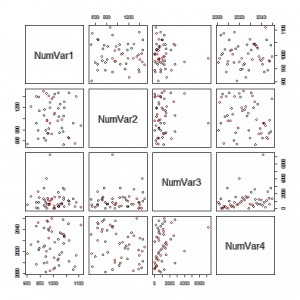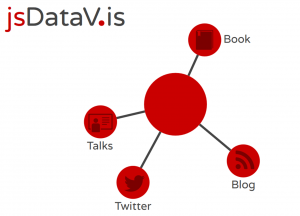Rtips. Revival 2014!
Posted by Armando Brito Mendes | Filed under estatística, matemática, software
Montes de exemplos de R numa única longa página.
Tags: análise de dados, Estat Descritiva, inferência, R-software, software estatístico
Montes de recursos sobre R
Posted by Armando Brito Mendes | Filed under estatística, materiais ensino, software
Muitos recursos para o R que vão de exemplos introdutórios até ao multivariado.
|
Do it yourself Introduction to R R is a free statistical programming language environment. It is completely free to anyone — like the air you breath is free. For more information on why everyone should be using R, see here. |
|
|---|---|
|
The goal of this site is to allow someone to overcome the intimidation associated with learning the very basics of R and showing them the tools for continued usage. Let’s get started. Some assumptions: This site assumes you are using a Windows operating system and have a basic understanding of file structures and paths. You will also need to have administrator privileges in order to install R. Some of the notes linked on this page are standard HTML pages; most of the links on this page are in R script file format (they have the file extension.R). Beyond that; the site and any instructions or links on it should be self-explanatory. It is STRONGLY recommended that one progress through the modules in order. A brief explanation of this page is here. UPDATE NOTE: April 23, 2015: current R version is 3.2.0 These pages have been tested for use with Firefox, other browsers may display the pages incorrectly. |
Tags: análise de dados, data mining, Estat Descritiva, R-software, software estatístico
Using Open Source in Higher Education: R Tutorials
Posted by Armando Brito Mendes | Filed under estatística, software
Alguns bons tutoriais para aprender mais.
Recent Posts
- R Tutorial: A Simple Script to Create and Analyze a Data File, Part Two
- Book Review: R High Performance Programming
- R Tutorial: A Script to Create and Analyze a Simple Data File, Part One
- Nonparametric Statistical Analysis Using R: The Sign Test
- Book Review: Mastering Beaglebone Robotics
Recent Comments
| R Tutorial: A Script… on R Tutorial: A Script to Create… | |
| Rees Morrison on Using R for Basic Cross Tabula… |
Archives
Categories
Tags: análise de dados, R-software, software estatístico
An Example of R Versatility
Posted by Armando Brito Mendes | Filed under estatística, software
An Example of R Versatility
By Dave Collingridge
In my last blog post I mentioned a few advantages to learning R. One of those advantages is that R opens up a world of new data analyses. There are novel techniques available in R that are not found in the ANALYZE drop down menus of SPSS, Stata, and Statistica. Novel techniques in R can be a big help in situations where data are not well-suited for traditional analyses like t-tests, ANOVA, and regression.
Tags: data mining, R-software
Base R Version
Posted by Armando Brito Mendes | Filed under estatística, materiais ensino, software, visualização
Excelentes exemplos de gráficos que podem usar nos trabalhos.
One Variable: Numeric Variable
One Variable: Factor Variable
Two Variables: Two Numeric Variables
Two Variables: Two Factor Variables
Two Variables: One Factor and One Numeric
Three Variables: Three Factor Variables
Three Variables: One Numeric and Two Factor Variables
Three Variables: Two Numeric and One Factor Variables
Three Variables: Three Numeric Variables
Scatterplot Matrix of all Numeric Vars, colored by a Factor variable
Tags: Estat Descritiva, R-software, software estatístico
Data Visualization with JavaScript
Posted by Armando Brito Mendes | Filed under estatística, SAD - DSS, software, visualização
Um bom e-book sobre como construir visualizações com JavaScript
It’s getting hard to ignore the importance of data in our lives. Data is critical to the largest social organizations in human history. It can affect even the least consequential of our everyday decisions. And its collection has widespread geopolitical implications. Yet it also seems to be getting easier to ignore the data itself. One estimate suggests that 99.5% of the data our systems collect goes to waste. No one ever analyzes it effectively.
Data visualization is a tool that addresses this gap.
Effective visualizations clarify; they transform collections of abstract artifacts (otherwise known as numbers) into shapes and forms that viewers quickly grasp and understand. The best visualizations, in fact, impart this understanding subconsciously. Viewers comprehend the data immediately—without thinking. Such presentations free the viewer to more fully consider the implications of the data: the stories it tells, the insights it reveals, or even the warnings it offers. That, of course, defines the best kind of communication.
If you’re developing web sites or web applications today, there’s a good chance you have data to communicate, and that data may be begging for a good visualization. But how do you know what kind of visualization is appropriate? And, even more importantly, how do you actually create one? Answers to those very questions are the core of this book. In the chapters that follow, we explore dozens of different visualizations and visualization techniques and tool kits. Each example discusses the appropriateness of the visualization (and suggests possible alternatives) and provides step-by-step instructions for including the visualization in your own web pages.
To give you a better idea of what to expect from the book, here’s a quick description of what the book is, and what it is not.
Tags: belo, data mining, desnvolvimento de software
PlotDevice: Draw with Python
Posted by Armando Brito Mendes | Filed under estatística, materiais para profissionais, software, visualização
Uma biblioteca de funções em Pyton para construir visualizações de dados.
You’ve been able to visualize data with Python for a while, but Mac application PlotDevice from Christian Swinehart couples code and graphics more tightly. Write code on the right. Watch graphics change on the right.
The application gives you everything you need to start writing programs that draw to a virtual canvas. It features a text editor with syntax highlighting and tab completion plus a zoomable graphics viewer and a variety of export options.
PlotDevice’s simple but comprehensive set of graphics commands will be familiar to users of similar graphics tools like NodeBox or Processing. And if you’re new to programming, you’ll find there’s nothing better than being able to see the results of your code as you learn to think like a computer.
Looks promising. Although when I downloaded it and tried to run it, nothing happened. I’m guessing there’s still compatibility issues to iron out at version 0.9.4. Hopefully that clears up soon. [via Waxy]
Tags: big data, data mining, desnvolvimento de software, Estat Descritiva
What is probabilistic programming?
Posted by Armando Brito Mendes | Filed under materiais para profissionais, software
Uma nova forma de trabalhar com modelos Bayesianos!
«
In this post, I introduce the emerging area of probabilistic programming, showing how probabilistic programs will hopefully make it easier to perform Bayesian-style machine learning, among other applications. Probabilistic programming is an exciting, and growing, area of research, with fantastic people in both AI/ML and PL working together and making big strides. PL methods — including formal semantics, optimization techniques, and forms of static analysis — have proven very useful in advancing this area forward.
Tags: bioinformatica, data mining, decisão médica, definição, desnvolvimento de software, qualidade
Why Content Marketing Fails
Posted by Armando Brito Mendes | Filed under materiais para profissionais, planeamento, software

Boa apresentação de slides para quem se interessa para criar negócios de conteúdos na web. Vejam igualmente as formas de visualização de dados usadas.
Why Content Marketing Fails Presentation Transcript
- Rand Fishkin, Wizard of Moz | @randfish | rand@moz.com Why Content Marketing Fails
- Download this Slide Deck bit.ly/mozcontentfail
- Failure Sucks
- Most Content Efforts Will Fail Spike of hope Flatline of nope
- You’ll Invest with the Best of Intentions
- You’ll Launch with Excitement
- And it Will Suck
- And You Won’t Know Why
- Why Your Content Marketing Will Fail 5 Reasons
- You Believed the Biggest Myth Content Marketing Ever Told the World #1
- We Imagine Content Marketing Works Like This… Let’s go see what’s on the Internet today, shall we?
- I wonder what this post Kieran tweeted is all about.
- That was an interesting. I should sign up for this free ebook download while I’m here!
- And I’ll just fill out their contact form with my information….
- Oh! Better not forget to follow all their social profiles while I’m at it.
- You might laugh, but a lot of companies invest in content marketing on the assumption that this is how it works! Me make content. Humans click. Them buy. Me get money.
- In Reality, It Works Like This: Let’s see what’s on Hacker News… Meh.
- How about Facebook? Oh, right. Baby pictures.
- Let’s try Twitter. Meh.
- Maybe Google+? Actually… This looks kinda interesting.
- After seeing 400+ links I could have clicked, I finally chose this one. It’s a good article, and this example, naturally, resonated
- I wonder why I like this blog so much? About a week later, I caught a link to Beardbrand’s blog.
- No magic trick to grow a thicker beard?! Dammit! I’d followed them on Google+, so I watched this video they shared, too.
- When my lovely wife told me that I might need to look into some mustache wax, I thought of Beardbrand. But I couldn’t remember their name! Lovely Wife Imminent need for mustache wax Who were those guys that made the cool beard stuff?
- So, naturally, I searched Google: Nope Nope Nope Yes!!
- A Perfect Match!
- Say goodbye bushy handlebars!
- This is How Content Marketing Really Works: Caveman Rand explain.
- This is How Content Marketing Really Works: Me Make Content. Humans click. If them like, them remember. Maybe them see more content I make. Visit again. Me build trust, relationship with humans. When them need me product, them come back.
- Content marketing not about convert 1st visit. Or 2nd. Or 3rd. Only foolish humans think it work like this.
- Content marketing about earning familiarity, trust, and relationship.
- Maybe sale come. Maybe not. Smart cave marketer no care. Smart cave marketer know every visit chance to build relationship. Maybe earn fan. That good enough.
- The Obligation Rests on Marketers to Set the Right Expectations with Our Teams & Clients
- You Made Content Without a Community #2
- Does Content Spread Simply Because It’s Really, Really Good? If this content’s really good, it’ll just spread “virally,” right guys?
- OK, Probably Not Ha! That’s a good one, Rand!
- In My Experience, Content Spreads Because It Inspires a Community
- It Reinforces a Belief
- Refutes an Opposing Argument
- Starts (or Renews) a Passionate Discussion
- Is in Someone’s Financial/Promotional Interests
- Leverages Group Inclusion Dynamics
- Makes the Sharer Look Smart/Important/Worldly/Etc
- “Good Enough” Content Often Performs Well when a Community Is Behind It
- Only the Best 0.1% of Content Can Go “Viral” without a Pre-existing Community
- Don’t Bet Your Marketing on Being the 1 in 1,000
- Before you create content, ask the question: “Who will support & amplify this content and why?”
- You Invested in Content Creation, But Not in its Amplification #3
- Content Must Reach People in Order to Reach Its Potential
- Channels for Reaching the Right People Depend on Your Audience
- Most Amplification Methods Fall Into These Three Buckets: Broadcast 1:1 Paid Promotion
- 1) Broadcast (often via Social Media, Email, or through Events)
- 2) 1:1 Outreach (via Social, Email, or In- Person)
- 3) Paid Amplification (many varieties)
- A basic process for getting content amplification right:
- STEP 1: Find Successful Content in Your Niche http://buzzsumo.com
- STEP 2(a): Find Where It’s Being Shared http://buzzsumo.com
- STEP 2(b): Go Beyond Social Networks Google Search and https://freshwebexplorer.moz.com/
- STEP 2(c): Find Who’s Doing the Sharing http://buzzsumo.com
- STEP 2(c): Find Who’s Doing the Sharing http://www.blindfiveyearold.com/ripples-bookmarklet
- STEP 3: Copy What’s Working For Them Via http://followerwonk.com
- STEP 4: Build Relationships with Those Who Can Help http://www.slideshare.net/RickTRamos1/why-do-peopleshareonline
- Don’t Treat Amplification as “Fire & Forget.” Experiment, Learn, & Apply. Via http://bit.ly
- Think of Each Channel Like a Muscle to Be Flexed & Strengthened Regularly
- Don’t Forget to Leverage What is Still the Most Powerful Sharing Channel (according to NYT): http://www.slideshare.net/RickTRamos1/why-do-peopleshareonline
- You Ignored Content’s Most Powerful Channel: SEO #4
- Google Search Has Grown Massively ~6 Billion Searches/Day! http://www.statisticbrain.com/google-searches/
- While Search Traffic is Distributed, Social is Highly Concentrated http://www.simplereach.com/blog/facebook-continues-to-be-the-biggest-driver-of-social-traffic/
- You Might Have Seen Re/Code & Buzzfeed Claiming Google Search Traffic Was Dead http://recode.net/2014/02/02/the-year-facebook-blew-past-google/
- Here’s Define Media Group refuting that with data from 87 publishers & 48 billion pageviews http://www.definemg.com/hey-buzzfeed-search-traffic-is-doing-just-fine/
- SEO is Also Critical Because of Intent “Do things” mode “Browse” mode
- When Done Right, Content Marketing is the Rising Tide that Lifts the SEO Ships Without content marketing, it’s incredibly hard to earn the types of links that will confer domain authority & rankings in search engines.
- When Done Right, Content Marketing is the Rising Tide that Lifts the SEO Ships But as content on a site earns links, it helps every other page on that domain rank better in the search engines, lifting the tide!
- At the Very Least, Do Your Keyword Research Be aware that AdWords may not show you all the relevant keywords: http://moz.com/blog/be-careful-using-adwords-for-keyword-research
- Better Yet – Gain a Deep Understanding of How SEO & Content Work Together 4 Posts I’d Recommend: • The Convergence of SEO & Content Marketing • Link Building vs. Content Marketing • How to Build a Content Marketing Strategy • Build & Operate a Content Marketing Machine
- You Gave Up Way Too Soon #5
- The 0.1% Always Look Like Overnight Successes
- In Reality, It Looks More Like This: Geraldine’s Travel Blog: http://everywhereist.com
- Geraldine started her blog in 2009 In Reality, It Looks More Like This:
- For 2 years, she never broke 100 visits/day. In Reality, It Looks More Like This:
- Then she had a few posts get some attention In Reality, It Looks More Like This:
- But traffic fell back down soon after. In Reality, It Looks More Like This:
- This is where most people give up. In Reality, It Looks More Like This:
- These days, she gets 100,000+ visits each month In Reality, It Looks More Like This:
- The Price of Success is Failure after Failure after Failure * Hopefully, each of those failures provides an opportunity to learn. *
- Why Content Marketing Fails Rand Fishkin, Wizard of Moz | @randfish | rand@moz.com bit.ly/mozcontentfail
Tags: b-learning, belo, desnvolvimento de software
Using Open Source Technology in Higher Education
Posted by Armando Brito Mendes | Filed under estatística, software
Using R for Basic Cross Tabulation Analysis: Part Three, Using the xtabs Function
crosstabsrr programmingr statisticstable analysis
Using R to Work with GSS Survey Data: Cross Tabulation Tables
chi squaredcross tablescrosstabsrr programmingr statisticstable analysis
R Tutorial: Using R to Work With Datasets From the NORC General Social Science Survey
create csv filefile conversionrr programmingr statisticsr tutorialread spss filesresearch
How to Set Up SSH to Remotely Control Your Raspberry Pi
mmand lineraspberry piraspberry pi computingRaspberry Pi Software Configuationremote access with sshset up sshsshterminal program
Tags: análise de dados, data mining, desnvolvimento de software, Estat Descritiva, R-software, software estatístico






